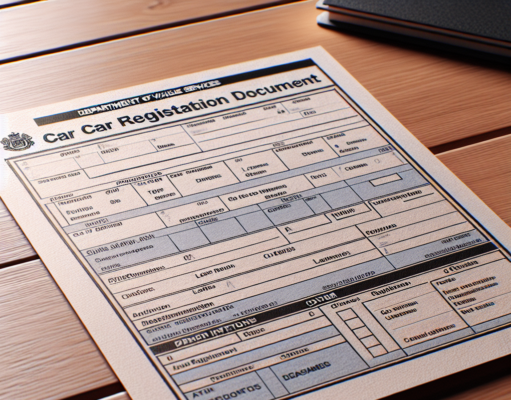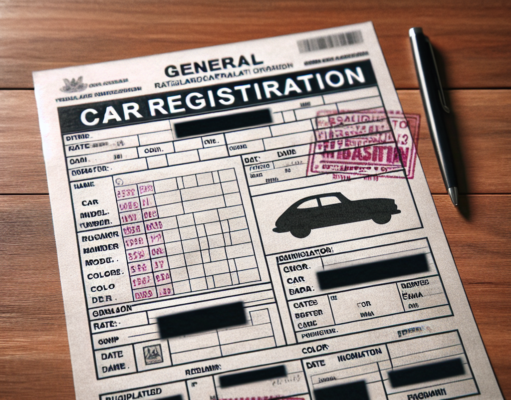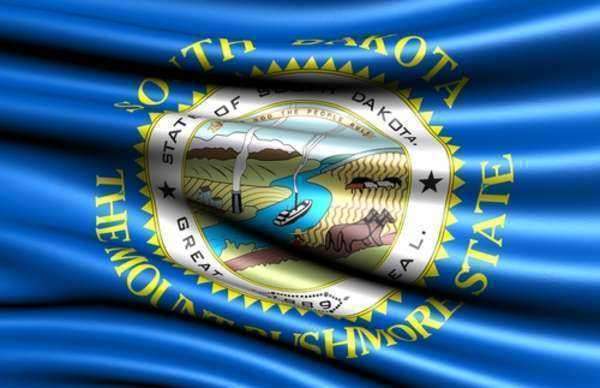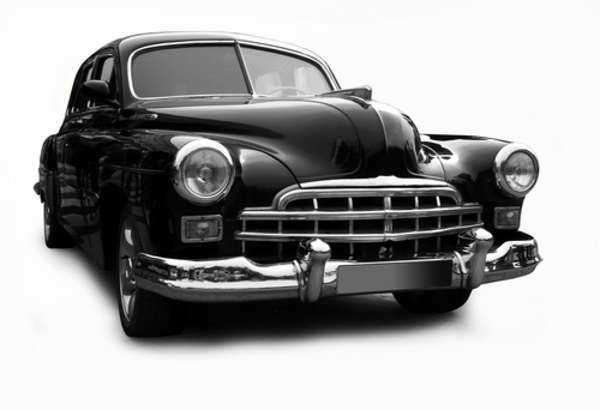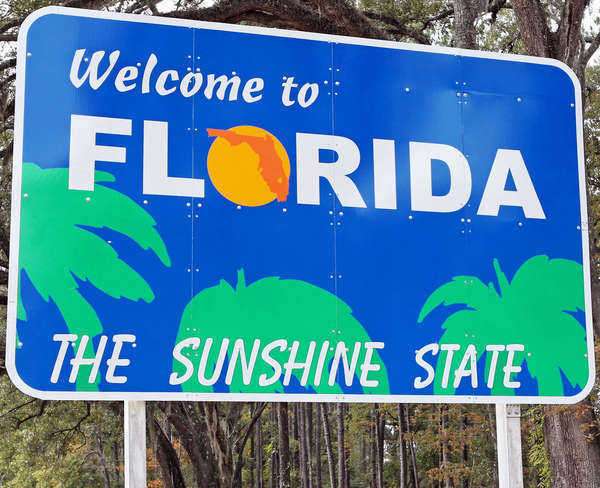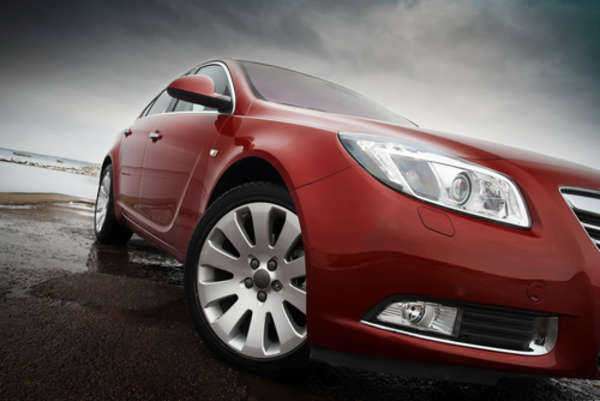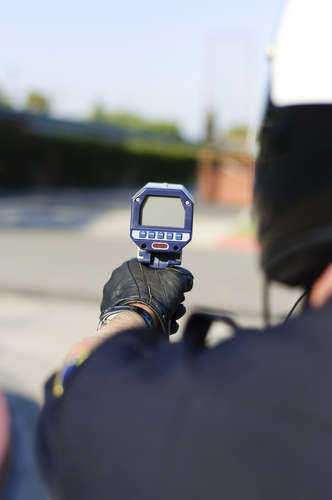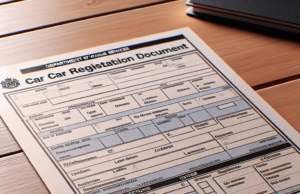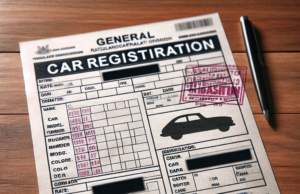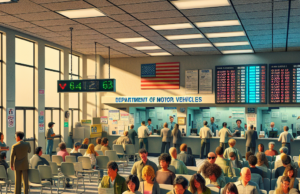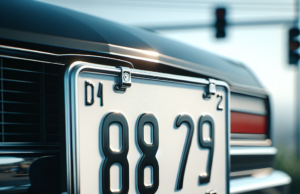
Rhode Island Vehicle Registration: A Step-by-Step Guide
If you own a vehicle in Rhode Island, it must be registered with the Division of Motor Vehicles (DMV). This process ensures that your vehicle is safe and legal to operate on the roadways in Rhode Island. In this article, we provide a comprehensive guide to the process of registering your vehicle in Rhode Island.
Registration Requirements
The following vehicles require registration in Rhode Island:
– Passenger cars
– Trucks
– Motorcycles
– Trailers
– Recreational vehicles
– Boats
To register your vehicle, you will need:
– Proof of ownership (title or registration certificate)
– Rhode Island driver’s license or state-issued ID
– Application for Registration and Titling
– Payment for registration fees and taxes
– Proof of insurance
Registration Process
Here is a step-by-step guide to registering your vehicle in Rhode Island:
1. Obtain a title for your vehicle.
If your vehicle is new or was previously titled in another state, you’ll need to obtain a Rhode Island title. You can do this by visiting the DMV office.
2. Obtain Rhode Island insurance.
You’ll need to provide proof of insurance when registering your vehicle. Rhode Island requires minimum liability insurance of 25/50/25.
3. Complete the Application for Registration and Titling.
The application is available on the DMV website or at any DMV office.
4. Submit your application and fees.
You can submit your application and fees in person at a DMV office. You can also submit your application and fees by mail.
5. Receive your registration and license plates.
After your application is approved, you will receive a registration certificate and license plates. Place the license plates on the front and back of your vehicle.
Registration Fees
Rhode Island registration fees vary based on the type of vehicle you own. Passenger cars have a base fee of $81.50 for two years. Additional fees may apply for vehicles over specific weights and ages.
Other fees may apply, such as a late fee if you fail to register your vehicle within 30 days of the date you started operating the vehicle in Rhode Island.
Conclusion
Registering your vehicle in Rhode Island is necessary to comply with state laws. By following the registration requirements outlined in this article, you can easily register your vehicle and avoid fines or penalties. Remember to keep your registration up to date to avoid any complications while operating your vehicle, and don’t forget to renew your registration every two years.
All vehicles in the state of Rhode Island must be properly registered with the Department of Revenue Division of Motor Vehicles in order to be legally used on the roads of Rhode Island. If your motor vehicle has not completed the RI vehicle registration process, this most likely means you have just purchased the new vehicle, moved into the state of Rhode Island, or received the motor vehicle as a gift. The RI vehicle registration and titling processes are very closely related. You must receive a new title and RI registration for your vehicle from the Division of Motor vehicles within thirty (30) days of taking ownership, or moving to Rhode Island.
Forms for Rhode Island Vehicle Registration
For a Rhode Island vehicle registration, you will need the certain documents depending on your specific circumstances. The following are the necessary documents for a RI vehicle registration depending on how you obtained the vehicle.
Rhode Island Vehicle Registration (Dealer Sale)
• Form TR-1, Application for RI Registration.
• Proof of Insurance Information for valid Rhode Island insurance.
• Bill of Sale for RI vehicle registration.
• Dealer Sales Tax form for RI registration.
• Gross Vehicle Weight.
• Rhode Island license or identification card.
• Power of Attorney for a leased vehicle for RI vehicle registration.
• Rhode Island Use Tax form for out-of-state dealers.
• If there are two owners on title, both must be present during the RI vehicle registration, if not, the signature of the absent party has to be notarized on Form TR-1 for RI vehicle registration.
• Manufacturer’s Statement of Origin or the title if the vehicle’s model year is 2001 or newer
• Vehicle Identification Number verification if the vehicle’s title is from a different state and the model year is 2001 or newer for RI registration.
Rhode Island Vehicle Registration (Private Party Sale)
• Form TR-1, Application for RI Registration.
• Proof of Insurance Information for valid Rhode Island insurance.
• Sales Tax form for RI vehicle registration.
• Title if the vehicle’s model year is 2001 or newer.
Vehicle Identification Number verification if the vehicle’s title is from a different state and the model year is 2001 or newer for RI registration.
• Gross Vehicle Weight.
• Bill of Sale for RI vehicle registration.
• Rhode Island license or identification card.
• If there are two owners on title, both must be present during the RI vehicle registration, if not, the signature of the absent party has to be notarized on Form TR-1.
• Proof of previous owner for non-titled motor vehicles for RI vehicle registration.
• Gift letter, which must be notarized if the vehicle is gifted by a non-immediate family member
Rhode Island Vehicle Registration (Out-of-State Transfer)
• Form TR-1, Application for RI Registration.
• Proof of Insurance Information for valid Rhode Island insurance.
• Tax questionnaire and Bill of Sale if applicable
• Tax exempt card for RI vehicle registration.
• Title (or copy if leased or financed) if the vehicle’s model year is 2001 or newer
• Vehicle Identification Number verification if the vehicle’s title is from a different state and the model year is 2001 or newer for RI registration
• Rhode Island license or ID card (if presenting out-of-state license, proof of residency is needed)
• Power of Attorney for a leased vehicle.
• Proof of ownership for non-titled motor vehicles for RI registration.
• If there are two owners on title, both must be present during the RI vehicle registration, if not, the signature of the absent party has to be notarized on Form TR-1.
Rhode Island Vehicle Registration Fees
The Division of Motor Vehicles accepts cash, personal checks, bank checks, and money orders for a Rhode Island vehicle registration. Any checks should be payable to the Division of Motor Vehicles. All fees have a $1.50 technology charge. Here are the Rhode Island registration fees based on vehicle:
• New passenger registration: Prorated by date, based on weight
• Passenger 2-year renewal: Based on weight
• New commercial registration: Prorated by date, Based on vehicle weight
• Commercial 1-year renewal: Based on vehicle weight, + $1.50
• New motorcycle: Prorated by date
• Motorcycle 2-years renewal : $27.50


